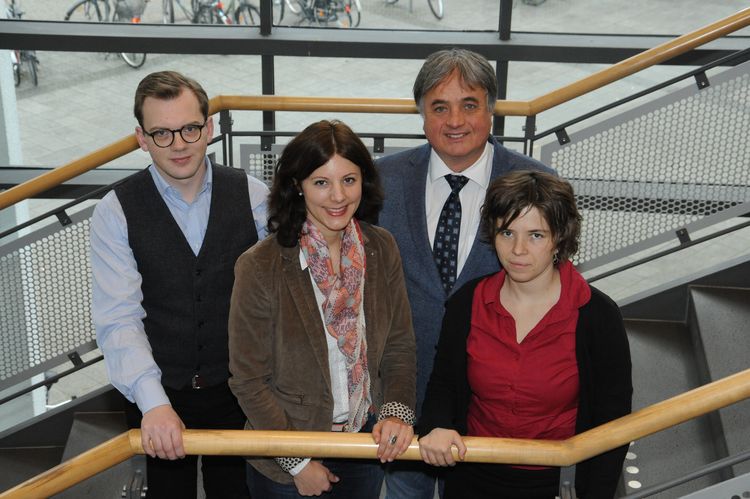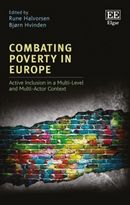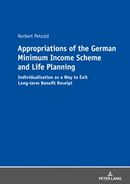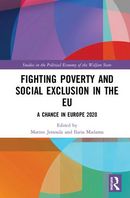COPE
COPE - Combating Poverty in Europe

 To combat poverty, European strategies propose implementing active inclusion policies. However, these policies face serious conceptual questions and governance challenges. Practical implementation is problematic in that social exclusion is a multidimensional problem that goes far beyond financial poverty, necessitating the participatory co-production of individual opportunities. In addition, the complex social needs of the most excluded groups require the integration of different policy fields and the involvement of beneficiaries, civil society and public agencies in the co-production of welfare. This project focuses on the political and organisational challenges of this complex governance model which has evolved from European, national and local policies. Investigating the co-production of active inclusion in a multilevel, multidimensional and multi-stakeholder perspective addresses key questions: How can the combat against poverty be organised in practice? How do European, national and local institutions shape the co-production of active inclusion? How do beneficiaries participate in these policies and how does this shape their life courses? COPE integrates multiple disciplines and partners experienced in European and Social Policy research. A common theoretical and methodological approach guides the research in each work package. COPE will create a critical mass of research in three key areas: First, we will contextualise poverty as a multidimensional challenge. Secondly, COPE will study how minimum income schemes for three different groups (lone mothers, long-term unemployed, working poor) are organised in five EU countries (Italy, Germany, Poland, Sweden and the United Kingdom) and how they cope with multilevel and multi-stakeholder modes of co-producing active inclusion policies. As these countries cover different welfare regimes, the results will have direct EU-wide relevance. To conclude, we will analyse the impact of these approaches on the individually perceived situation of the poor and the life courses of the most vulnerable social groups.
To combat poverty, European strategies propose implementing active inclusion policies. However, these policies face serious conceptual questions and governance challenges. Practical implementation is problematic in that social exclusion is a multidimensional problem that goes far beyond financial poverty, necessitating the participatory co-production of individual opportunities. In addition, the complex social needs of the most excluded groups require the integration of different policy fields and the involvement of beneficiaries, civil society and public agencies in the co-production of welfare. This project focuses on the political and organisational challenges of this complex governance model which has evolved from European, national and local policies. Investigating the co-production of active inclusion in a multilevel, multidimensional and multi-stakeholder perspective addresses key questions: How can the combat against poverty be organised in practice? How do European, national and local institutions shape the co-production of active inclusion? How do beneficiaries participate in these policies and how does this shape their life courses? COPE integrates multiple disciplines and partners experienced in European and Social Policy research. A common theoretical and methodological approach guides the research in each work package. COPE will create a critical mass of research in three key areas: First, we will contextualise poverty as a multidimensional challenge. Secondly, COPE will study how minimum income schemes for three different groups (lone mothers, long-term unemployed, working poor) are organised in five EU countries (Italy, Germany, Poland, Sweden and the United Kingdom) and how they cope with multilevel and multi-stakeholder modes of co-producing active inclusion policies. As these countries cover different welfare regimes, the results will have direct EU-wide relevance. To conclude, we will analyse the impact of these approaches on the individually perceived situation of the poor and the life courses of the most vulnerable social groups.
Scientific Coordinator
Project Researchers in Oldenburg
Norbert Petzold
Deborah Rice
Katharina Zimmermann
Cooperation Partners
Daniel Clegg, University of Edingburgh
Maurizio Ferrera, Milan State University
Wiesława Kozek, University of Warsaw
Håkan Johansson, Lund University
Bjørn Hvinden, NOVA, Oslo
Financing
From 2012 to 2015 COPE was financed in the Seventh Research Framework of the European Commission (Grant agreement No. 290488; Project COPE)
Combating Poverty in Europe. Active inclusion in a multi-level and multi-actor context

Discovering methods to combat poverty and social exclusion has now become a major political challenge in Europe. Combating Poverty in Europe offers an original and timely analysis of how this challenge is met by actors at European, national and subnational levels. Building on a European study comparing Germany, Italy, Poland, Sweden and the UK, this book provides new insights into the processes and mechanisms that promote or hinder interaction between the increasingly multi-layered European system for responding to poverty and social exclusion in EUmember states. The contributors present systematic and comparative analyses of social policy design, institutional frameworks and delivery practices from a multi-level governance perspective. Original and diverse, this book will appeal to researchers and scholars in comparative social policy, as well as policy officials in the EU, national government and anti-poverty NGOs.
Editors: Rune Halvorsen and Bjørn Hvinden
Contributors include: A. Angelin, H. Bennett, D. Clegg, M. Ferrera, R. Halvorsen, B. Hvinden, M. Jessoula, H. Johansson,M. Koch, W. Kozek, J. Kubisa, F. Maino, A. Panican, D. Spannagel, E. Ugreninov & M. Zieleńska
Website of the Project
For further information on the project, please visit its website.





